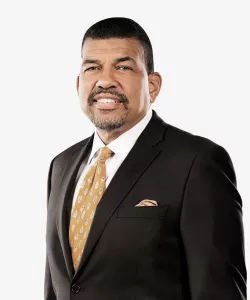Employment Best Practices for Hotel Operators During the Pandemic
As travel increases despite ongoing pandemic concerns, hotel operators must address how to welcome back the increased workforce needed to care for more guests.
While some hotels remained open during quarantine with skeletal staff and now are looking to increase guest occupancy, other hotels were forced to close during quarantine and are just now beginning the reopening process. Geography also plays a role; a hotel in Orlando, Florida, with three floors and ample employee parking space faces a different set of obstacles from a hotel in Manhattan, New York, with sixty floors and employee reliance on public transportation. Despite being at different stages of business operations and facing different obstacles in operating during the pandemic, all hotel operators face one overarching obstacle—fear. To help allay the fear of hotel employees and hotel guests, this Alert provides best practices to aid hotel operators in developing a plan to open and/or keep their hotels operational while keeping their employees and guests as safe as possible during the pandemic.
1. Assess the business.
Hotel operators should compare business before the pandemic with how they see business continuing not just at this stage of the pandemic, but more importantly going forward even after the pandemic has ended. Plans should not be based on the idea of a return to pre-pandemic conditions but rather on an analysis of how business has changed. In particular, hotel operators should consider what they have learned during the pandemic that impacts productivity. Specifically, they should reconsider their staffing needs, the job functions of each job position and what works best for maximum guest satisfaction.
Hotel operators also should determine what potential legal and financial exposure might have developed already due to the unplanned steps taken in response to the onslaught of the pandemic. Sources of such exposure might include:
- Wage and hour (time-keeping)
- Deviation from existing policies
- Changes to employee duties
- Accommodation demands
- Leaves of absence (personal illness, illness of relatives, childcare)
- Worker’s compensation issues
- Wrongful death claims
- Whistleblower claims
- NLRA issues
- OSHA issues
- Diversity and inclusion
- EEOC issues (Title VII, ADEA, ADA, state and local human rights laws)
- State directives
- Federal and state labor law issues (duty to bargain, protected concerted activity)
Arent Fox clients across all industries have reported significant departures from normal business operating rules and procedures that likely have exposed such businesses to claims. The most common source of exposure is the allowance of non-exempt employees to work remotely without the use of proper timekeeping measures to ensure accurate recording of employees’ time. Even worse, allowing employees to perform their duties over a period of a day longer than the normal eight hours exposes the employer to claims of entitlement of overtime for such employees. Another frequent concern is allowing employees to work without performing all of the functions of their positions, thus exposing their employer to (i) demands for a future accommodation based on that allowance of liberty or (ii) employee claims that their positions only require the functions they performed during the pandemic.
2. Develop a Moving Forward Plan.
A definitive plan for how the hotel will operate going forward can help hotel staff realign with the operating protocols the employer wants followed and can provide hotel staff comfort in that the employer is providing a safe environment. A Moving Forward Plan (an “MFP”) should cover standards for operation within specific circumstances, provide for flexibility to address unforeseen issues, and establish a process for determining when to advance to the next phase for the hotel operation as the hotel moves through the steps of business regeneration. Hotel operators should engage legal counsel to review the MFP for legal compliance and to offer insight into other best practices they should consider. If there is a collective bargaining agreement in place, employers need to be cognizant of the likelihood that they have a duty to bargain with the unions that represent their employees. This duty can arise when the employer is laying off employees, recalling employees from layoff, or enacting changes in policies or changes in job duties. In light of the NLRB’s guidance on bargaining obligations during the pandemic, it is very important for hotel operators to consult counsel at the earliest stages of planning to maximize their entitlement to favorable rights that will lessen the bargaining obligations they might confront.
A. Return to On-Site Work
When addressing steps to aid with effective on-site working, the key will be ensuring a safe environment for those who come to work. Depending on the jurisdiction in which the hotel is operating, the hotel operator might have a mandatory duty under state law to test employees and guests before they enter the hotel premises. Some jurisdictions do not have these mandatory requirements, but a responsible employer might choose to take similar steps to enhance the safety of the work environment. Currently the law does permit an employer to test employees before they come to work.
Similarly, the law allows employers to test employees who have recovered from COVID-19 and employees who live with family members who either have COVID-19 or show symptoms. Some employers who have established ongoing testing requirements have instituted daily employee screenings through a mobile phone application coupled with temperature checks when the employees arrive at the worksite. Others have implemented contact tracing procedures to protect those who have come into contact with an employee who tested positive. Moreover, hotel operators should establish protocols for how to integrate employees with the least exposure to COVID-19 (e.g., younger employees, employees without pre-existing health conditions) with employees with greater exposure. As noted above, some of these steps might be required by state or local law. Whether required or not, these steps will help alleviate employee concern and fear about coming to the hotel premises to work.
Hotel operators also need to give serious thought to whether anyone can work remotely. While employees do not have an automatic legal right to work remotely and hotels rely heavily on in-person interactions (e.g., front desk attendants, housekeepers, and chefs), one of the key lessons from this period is the recognition of how many job functions can be performed effectively remotely. Hotel operators should evaluate each job position to determine first which functions are truly necessary for the quality operation of the hotel, then which of those functions can be performed remotely and which must be performed on premises. This analysis should be based on the job description rather than on any individual employee. Focus on individual employees is likely to result in allowances based on the employee instead of on the actual needs of the position. Based on this analysis, the hotel operator then can determine which positions can be permitted to work remotely versus on site, or whether there is a need for some form of hybrid work arrangement. For those allowed to work remotely, the employer should institute a policy specifying the protocols for remote work.
All employees should be kept informed of their risk exposure, and hotel operators should be flexible in managing employees’ anxieties about returning to work. In preparing the MFP, hotel operators should avoid being paternalistic, instead focusing on the business reasons for enacting new policies. Hotel operators should not determine whether an employee can work based on any particular perceived higher exposure to COVID-19, such as age or ethnic heritage.
B. Business Operations
With the number of guest bookings still subject to high volatility as public concern over the pandemic waxes and wanes, hotel operators must consider how to conduct business with guests, vendors, and other visitors while maintaining safety standards.
i. Workforce Changes. Workforce size and policies may need to change; some positions may need to be combined, modified, or eliminated, depending on how essential they are and/or how they can be adapted to new requests. As noted above, hotel operators should review with their legal counsel the functions of job positions to determine what might not be necessary, and then determine which among the remaining functions are essential versus marginal. The determination of essential versus marginal will be very important with regard to future requests for remote work as an accommodation. Also, if the positions at issue are subject to a collective bargaining relationship, the hotel operators should craft a plan for working with the unions involved to ensure success with any desired changes to the positions and operations.
ii. Transportation. As a result of the pandemic, people have become more reluctant to use public transportation, but public transportation is likely the primary method by which many hotel employees come to work in big cities. Recognition of this reality means hotel operators will need to develop staggered work schedules to avoid elevated exposure to COVID-19 during transit to work. Depending on the hotel and/or the hotel’s location, the hotel operator also might consider alternative choices for transit to work, such as the use of Uber/Lyft or the provision of paid parking options. However, these alternatives might become too costly to be realistic.
iii. Workday Logistics. Once hotel operators have determined how employees will reach the hotel safely, hotel operators should determine what kind of cleaning protocols to institute and who will ensure such protocols are followed. Hotel operators should:
- Establish a committee to monitor the distribution to employees of personal protective equipment (“PPE”), such as masks, gloves, and hand sanitizer. Furthermore, the hotel operator should have a policy on wearing masks and on how to address the issue of being vaccinated once an effective vaccine becomes available.
- Institute procedures to ensure social distancing is enforced—both between employees (e.g., staggering working hours to avoid overcrowded entry points) and between employees and guests (e.g., ensuring enough time has passed between a housekeeper and a guest’s entering the same room).
- Develop a process for reviewing accommodation requests. While allowing for flexibility in determining how to accommodate employees facing special circumstances, hotel operators must keep in mind the need for employees to perform the essential functions of their positions.
Hotel operators should meet with building managers to ensure good ventilation, safe usage of elevators, and clean common work areas and employee facilities (e.g., break rooms, restrooms, and kitchens, cafeterias, and/or pantries). In addition, hotel operators should consider if and how to offer childcare services, on or off site, especially if some schools remain closed or are operating virtually. While not legally required, childcare is the most common concern employees have reported during the pandemic, since schools are either partially or totally virtual.
In formulating how to tackle these potential issues in an MFP, employers should institute a test run with limited staff.
C. Subsequent Wave of COVID-19
The MFP also should contain a contingency plan for a subsequent wave of COVID-19. Such contingency plan might provide for continuing operations with a skeleton staff, incorporating improvements based on skeleton staff operations during the first wave of COVID-19. To that end, a contingency plan also might identify essential employees and the PPE required to protect them, as well as equipment/supplies to accommodate a return to remote working for those employees who can work off site.
3. Implement the Moving Forward Plan.
Once legal counsel has reviewed the MFP and the MFP is put in place, hotel operators must ensure employees have access to the MFP. Some employers have instituted “re-entry boot camps” to provide online training that introduces the MFP and highlights key provisions that directly affect employees’ day-to-day operations. To underscore such training, a COVID-19–specific page on the hotel’s internal website or employee portal should be created through which employees can view the MFP, access resources on physical and mental health, and receive communications (video and/or written) from hotel management. The webpage also might contain FAQs about the MFP and the return to on-site work, guidance from government and health agencies, and a community support forum on which employees can post communications or even raise financial support for colleagues affected by COVID-19.
4. Prioritize safety and be flexible.
Throughout the process of stabilizing continued business operations, regardless of the starting point, hotel operators should recognize how employees’ concern about their health and safety will affect their willingness to work and their level of performance. Flexibility will be key in balancing employee needs with business needs as conditions evolve, especially if a particular protocol is not working and needs to be replaced. Hotel operators should ensure that they have an effective plan in place that helps employees and guests feel safe and secure in the hotel environment. This plan should address possible requests for accommodations and possible responses, provision of PPE such as masks, and ways to address requests for leave and/or childcare. In devising an MFP, hotels operators should strongly consider the advice and requirements of local governments and health authorities and consult legal counsel for definitive guidance at the earliest stage of planning.
Contacts
- Related Industries
- Related Practices


